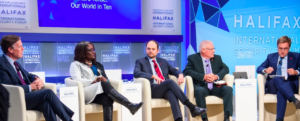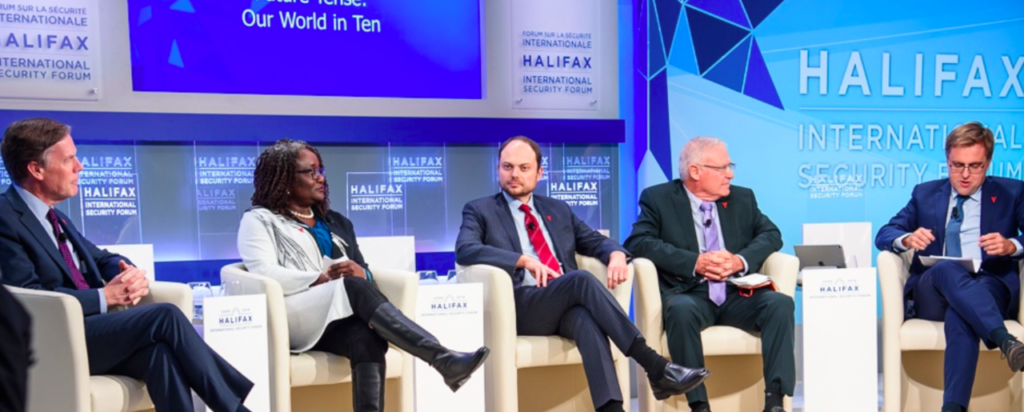For years after the end of the Cold Year it was possible to believe democracy was on the march across the globe. Now there are as many reasons to believe democracy is seriously challenged, even losing ground year after year, Paul Wells writes for Macleans.
One of the main themes coming out of this year’s Halifax Security Forum is the biggest threat to democracy is coming from within, Chris Hall writes for Harvard’s Belfer Center:
Peter van Praagh, president of the Halifax International Security Forum, says the forum’s focus for much of the past 10 years has been on countering the influence of Russia and China, on preventing North Korea from developing nuclear weapons, and the need to combat terrorism. But at the closing news conference Sunday in Halifax, van Praagh said the conversation is “now about ourselves.”
“Looking at ourselves and figuring out how to protect our own democracies. And I do think that over the next year … the next little while, that that’s going to be the pressing issue.”

Halifax Security Forum
“In the democratic world, many of our strongest and largest democracies are in some type of crisis,” says former U.S. ambassador Nicholas Burns (far left), who now teaches at the Kennedy School at Harvard University.
The Forum is designed to be a gathering of the world’s democratic countries, which are allied to protect each other, notes Kori Schake, deputy director-general of the IISS. Hosted by the Canadian defense minister, the Forum’s signature is the brief videos that introduce the annual gathering. This year’s intro showed relay runners, mostly American, at the Olympics from Berlin in 1936 forward, ending in an uncertain baton handoff, she writes for The Atlantic.
The tone was set on Saturday by Gen. Joseph Dunford, the Chairman of the U.S. Joint Chiefs of Staff, citing the latest U.S. National Defence Strategy, which demotes ISIS and al-Qaeda down the list of the biggest threats to the United States, in favor of China, Russia and a renewal of great-power competition in general, Macleans adds.
 “Today we can meet our alliance commitments against any potential adversary—particularly if you look at it in a coalition alliance perspective,” Dunford said. “I believe that to be the case in 2018. But I also know that our relative competitive advantage—again in projecting power and operating freely across all domains—has eroded over the past 10 or 15 years as we… focused for a while on dealing with violent extremism.”
“Today we can meet our alliance commitments against any potential adversary—particularly if you look at it in a coalition alliance perspective,” Dunford said. “I believe that to be the case in 2018. But I also know that our relative competitive advantage—again in projecting power and operating freely across all domains—has eroded over the past 10 or 15 years as we… focused for a while on dealing with violent extremism.”
“If we don’t change the trajectory that we have been on… if we don’t look carefully at those areas where we are now challenged by Russia, China and frankly others…….. then whoever is in my job in 2023 and 2024… will probably not have the same degree of confidence in talking about our ability to meet alliance commitments.”
“The disruptive nature that Russia has taken, it goes against the rules-based order that we’re used to,” said Canadian defense minister Harjit Sajjan. The recent commemorations marking the 100th anniversary of the end of the First World War serve as a poignant reminder of the fragility of democratic institutions.
The forum for ensuring the strength and prosperity of liberal values and democracy heard Vladimir Kara-Murza (below, center), Vice Chairman of Open Russia, urge participants to challenge the perception of President Vladimir Putin’s invincibility within Russia, citing examples from Russian history that demonstrate the country’s capacity for and inclination towards leadership change, Burns adds.

Halifax Security Forum







